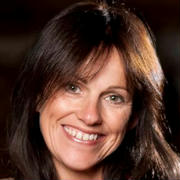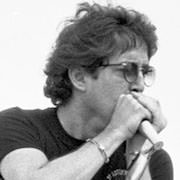The Waterboys are a Scottish-Irish folk rock band formed in Edinburgh in 1983 by Scottish musician Mike Scott. The band's membership, past and present, has been composed mainly of musicians from Scotland, Ireland, Wales and England. Mike Scott has remained as the only constant member throughout the band's career. They have explored a number of different styles, but their music is mainly a mix of folk music with rock and roll. They dissolved in 1993 when Scott departed to pursue a solo career. The group reformed in 2000, and continue to release albums and to tour worldwide. Scott emphasises a continuity between The Waterboys and his solo work, saying that "To me there's no difference between Mike Scott and the Waterboys; they both mean the same thing. They mean myself and whoever are my current travelling musical companions."
The early Waterboys sound became known as "The Big Music" after a song on their second album, A Pagan Place. This style was described by Scott as "a metaphor for seeing God's signature in the world." Waterboys chronicler Ian Abrahams elaborated on this by defining "The Big Music" as "...a mystical celebration of paganism. It's extolling the basic and primitive divinity that exists in everything ('the oceans and the sand'), religious and spiritual all encompassing. Here is something that can't be owned or built upon, something that has its existence in the concept of Mother Earth and has an ancestral approach to religion. And it takes in and embraces the feminine side of divinity, pluralistic in its acceptance of the wider pantheon of paganism."
"The Big Music" either influenced or was used to describe a number of other bands specializing in an anthemic sound, including U2, Simple Minds, In Tua Nua, Big Country and Hothouse Flowers.
In the late 1980s, the band became significantly more folk-influenced. The Waterboys eventually returned to rock and roll, and have released both rock and folk albums since reforming.



























